In this guide, we will focus on how to install VMware Workstation Pro on Ubuntu 24.04 step-by-step.
VMware Workstation is a type 2 hypervisor designed for Windows and Linux systems. It allows you to create and manage virtual machines on Windows or Linux environments.
VMware Workstation Player is no longer available as a separate product. Now, it’s VMware Workstation Pro for both Windows and Linux, and VMware Fusion Pro for macOS. Both are free for personal use.
Prerequisites
Before you begin, ensure you have the following:
- A system running Ubuntu 24.04 (Desktop version preferred for GUI usage)
- A non-root user with sudo privileges
- At least 4GB of RAM and 20GB of free disk space
- An active internet connection
Without any further delay, let’s deep dive into VMWare Workstation Pro installation steps.
1) Update Your System
It is highly recommended to install the available updates on your Ubuntu system. Run the beneath apt commands.
$ sudo apt update $ sudo apt upgrade -y
Once all the updates are installed, reboot you system once using the command.
$ sudo reboot
2) Download VMware Workstation PRO
VMware Workstation is not available in default package repositories of Ubuntu 24.04. So, to install VMware Workstation Pro on Ubuntu 24.04, first we must download its bundle file using the following procedure.
- Login to the Broadcom Support Portal – https://support.broadcom.com . If you don’t have an account, create one to proceed.
- After successful login, access the VMware Workstation Pro downloads using the link, Download VMware Workstation Pro
- Expand “VMware Workstation Pro <version> for Linux”
- Select the version you want to download under the release column.
At the time of writing this guide, the latest version is VMware Workstation Pro 17.6.2, and the download size is around 372 MB.
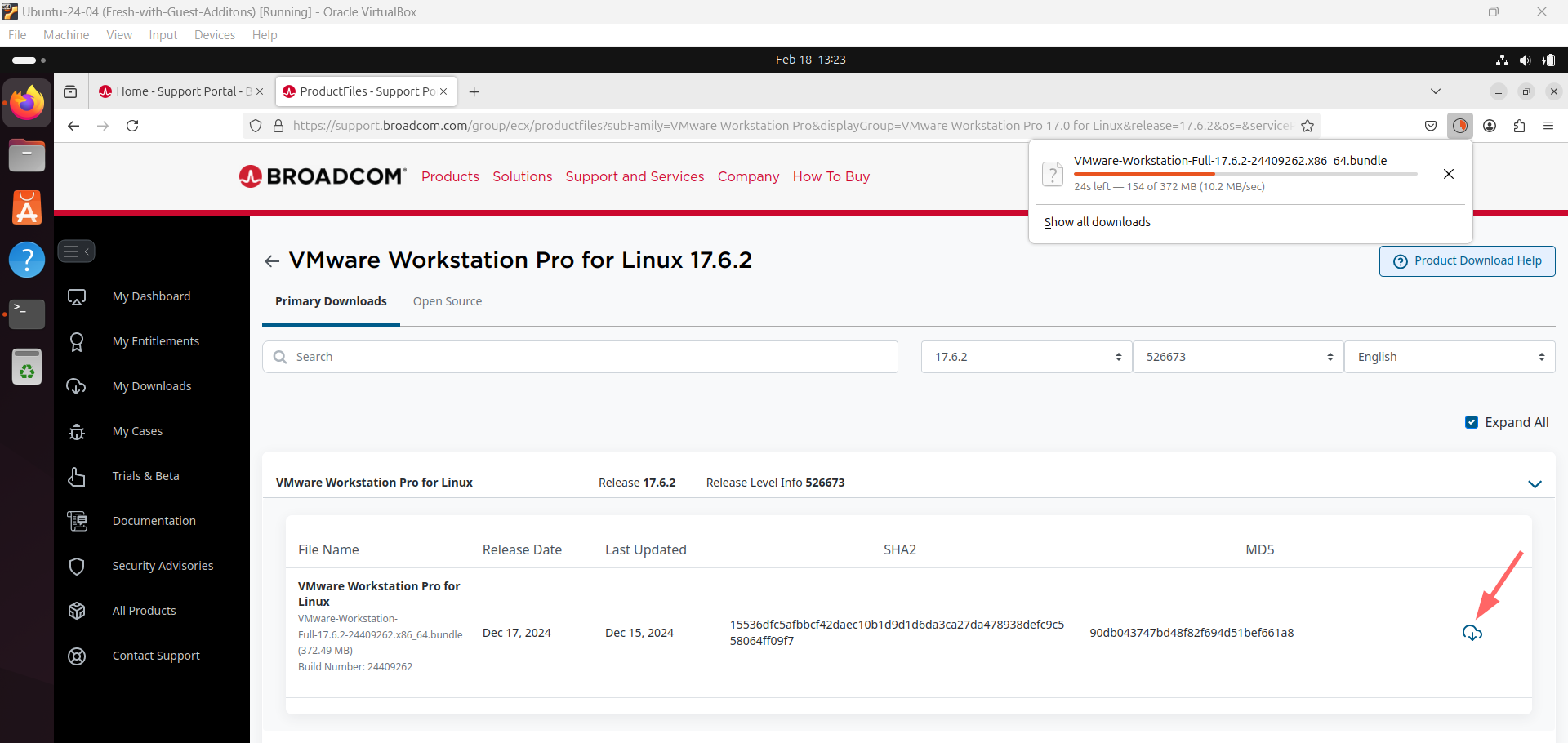
The installation bundle gets downloaded in the Downloads folder that is located in your home directory. You can confirm this using the ls command as follows.
$ ls -l Downloads

3) Install VMware Workstation Pro
Before starting the installation, let’s first install the prerequisites using beneath apt command,
$ sudo apt update $ sudo apt install -y build-essential -y
To install VMware Workstation, run the following bash command. Kindly note that the VMware Workstation installation file name will be different from yours if a newer version will be made available.
$ sudo bash VMware-Workstation-Full-17.6.2-24409262.x86_64.bundle
The command extracts the Vmware installer and installs VMware on your system. This takes roughly 2 to 3 minutes, so just be patient. At the very end, you will get confirmation that the installation was successful.

4) Install required additional kernel modules
For VMware workstation to work seamlessly, some additional kernel modules are required. As such, install them as follows.
$ sudo vmware-modconfig --console --install-all
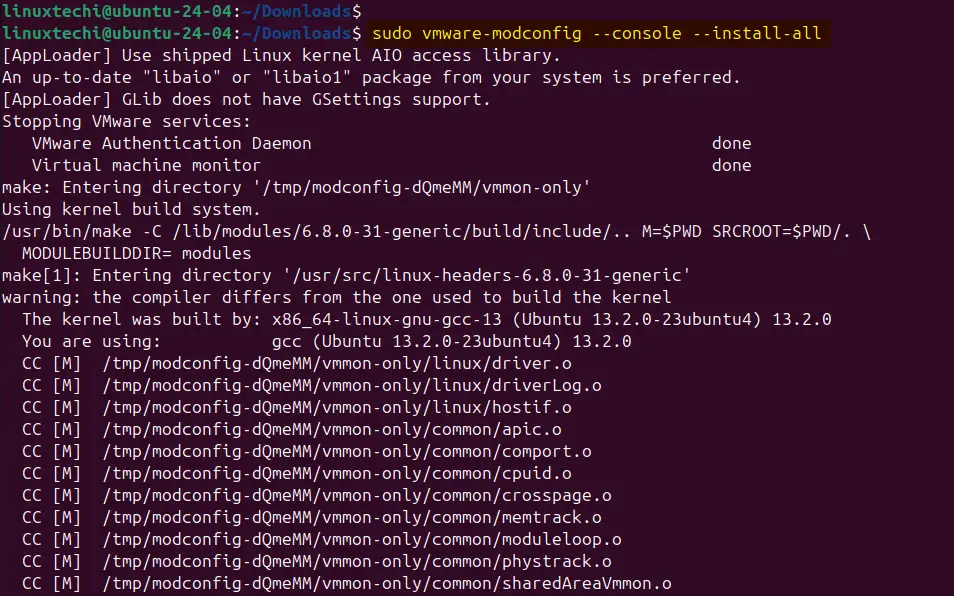
5) Launch VMware Workstation
The final step in the installation process is to launch VMware Workstation and complete the setup. So, click the ‘Activities’ tab and search VMware workstation then click the icon shown below.

The following window will pop up. Be sure to read through the End User License Agreement and accept the terms. Then click ‘Next’ to proceed to the next step.

Similarly, accept the next set of license agreement terms and click ‘Next’.
In the following Screen, based on your interest, select the option accordingly.
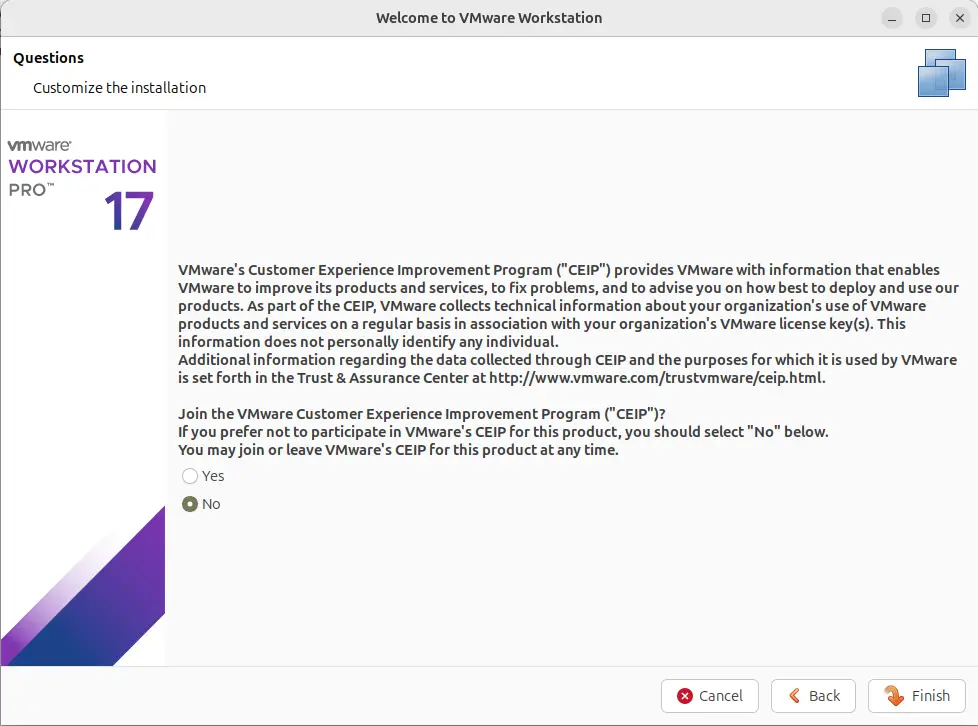
Once you click the ‘Finish’ button, you will be required to authenticate, and therefore, provide your password and click the ‘Authenticate’ button.
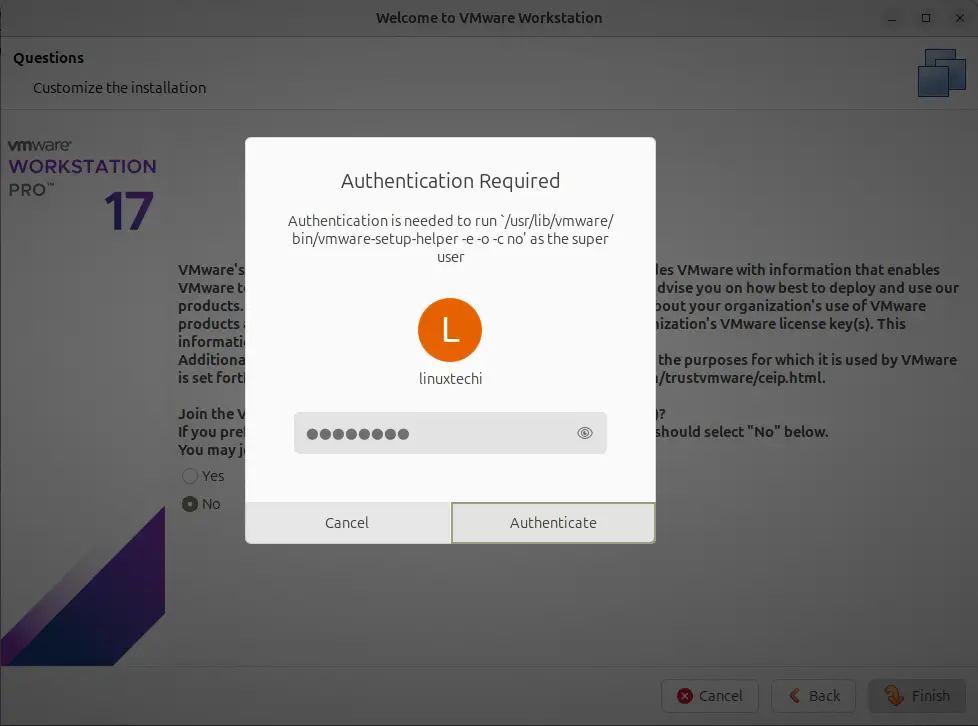
Finally, we will get the following VMware Workstation Pro UI.
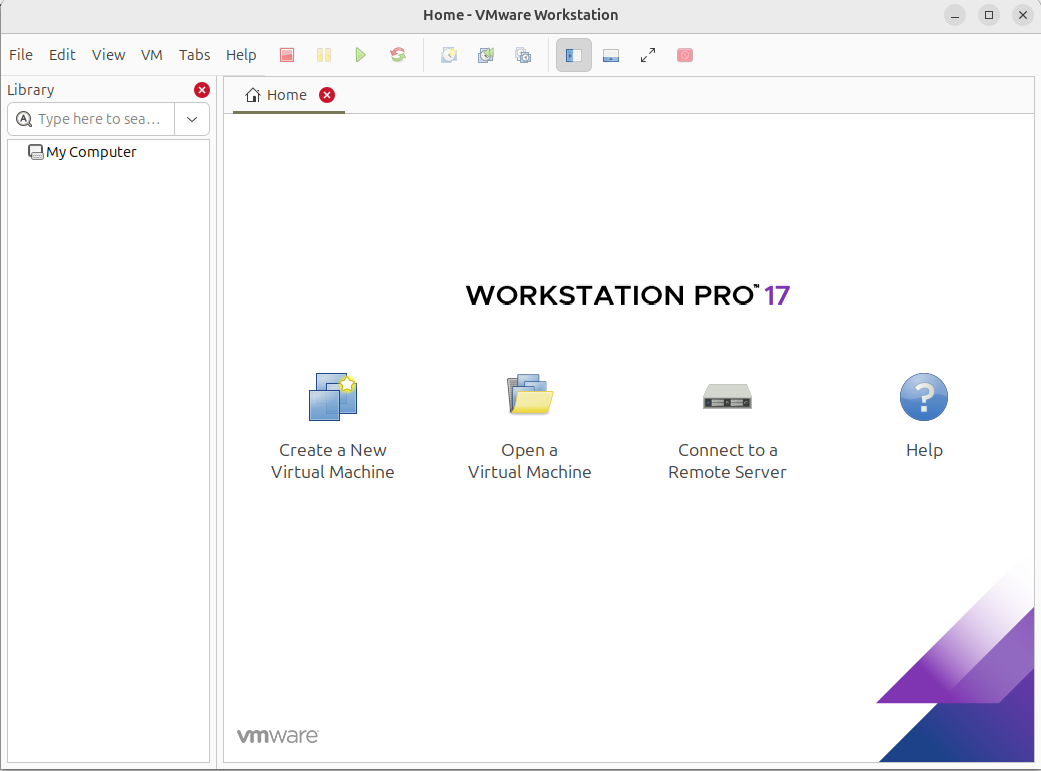
From here you cannow create and manage your virtual machines.
Conclusion
This wraps up this guide on how to install VMware Workstation Pro on Ubuntu 24.04 .You can now leverage its virtualization capabilities to run and test your favourite operating systems with ease including Linux, Windows, and even UNIX varieties such as BSD. All the best as you get started out with VMware Workstation Pro.
Also Read: How to Configure Static IP Address on Ubuntu 24.04 (Desktop)

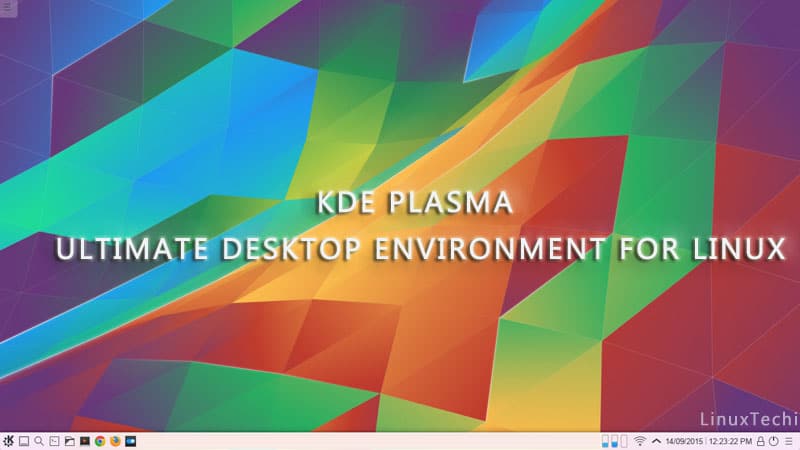


Thanks a lot for valuable guidance!!!!!
Here are few / Universal License Keys //
VV7XU-F6DDQ-485DZ-X4M7T-PF8ZD
ZG75H-FZF83-M8DLZ-4ZW5E-NP0W0
AV518-09FD0-48D1P-EMQEX-Z72C6
GG7W0-DAY5Q-0858Q-6GWZ9-W7RT8
CV512-FAW91-085NP-DMXQX-QLHAF
AA7DU-APW15-H848Q-P5ZGZ-PCRC2
VU1N2-6DE5N-M8DLQ-AEMEV-XA2Z4
UV3NR-AMZ17-08EZP-9YQQE-MZAY8
GC75U-21E50-M8D5Q-K6YQX-W28V8
1F04Z-6D111-7Z029-AV0Q4-3AEH8
CZ7E2-2FY5P-08DUP-6XNXG-WPKE8
Hope this will help to others
Hi,
Thank you for this guide. I installed successfully the workstation. But, it’s doesn’t work.
I have this message: Before you can run vmware, several modules must be compiled and loaded into the running kernel. I click on install but the vm doesn’t run.
For more details the vmware-root directory doesn’t open. I’m running Ubuntu 14.04 TLS.
Is there any patch ton install?
How to compile the vm?
Thank you for your help.
Excellent thank you very much, very understandable.
thank you very useful
i have error—> Unable to start services.
See log file /tmp/vmware-root/vmware-7031.log for details.
bro installed succesfully but caanot open